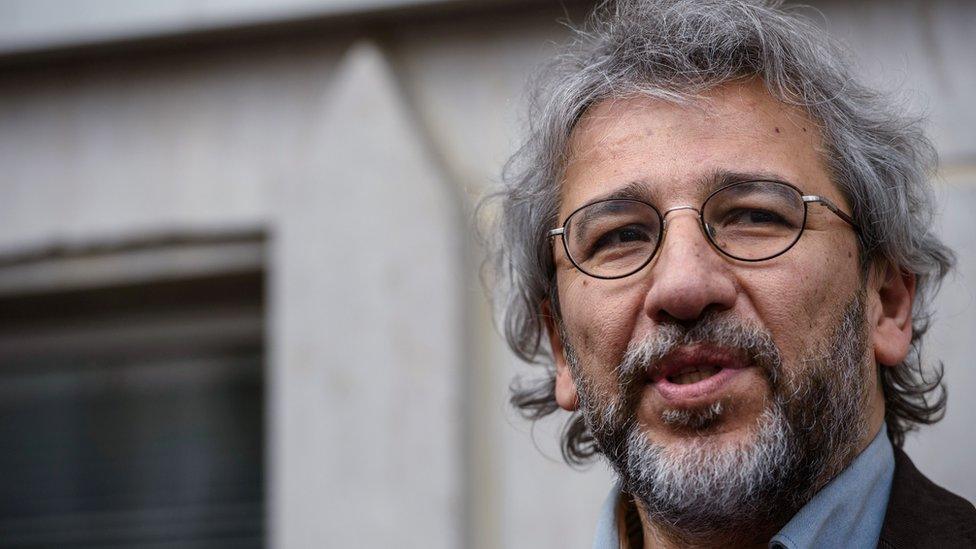Turkey: Cumhuriyet editor Dundar resigns in wake of coup
- Published

Can Dundar, who was freed pending an appeal, is thought to be living in Germany
A Turkish journalist who faces jail for revealing state secrets has resigned as editor of the opposition Cumhuriyet newspaper.
Can Dundar said trusting the judiciary after July's failed coup would be "like putting one's head under a guillotine".
The government has cracked down on the media following the coup attempt.
In May, Mr Dundar was sentenced to five years in prison, but was freed pending an appeal. He is thought to have left the country.
He and a colleague were convicted over reports they published that Turkish intelligence operatives were smuggling arms to Syrian rebels.
In the failed coup on 15 July, rebel soldiers tried to oust President Recep Tayyip Erdogan. Since then, more than 23,000 people accused of backing it have been detained or arrested and 82,000 state employees have been dismissed or suspended.
Pride and fear one month on from Turkey coup attempt
Turkey sentences prominent journalists in state secrets trial
The authorities have also closed some media outlets, placed some journalists in detention and banned others from travelling abroad.
As the crackdown continued on Monday, two colonels were detained for questioning by police and three Istanbul courthouses were raided. Arrest warrants were issued for 173 judicial staff.
Two hundred and forty people died resisting the takeover, standing against fighter jets and tanks.
'Lawlessness'
Mr Dundar, who is thought to be in Germany, has written in Cumhuriyet that he will not surrender to the judiciary until the state of emergency is lifted.
"From now on, what we face would not be the court but the government. No higher court would object to the lawlessness being carried out," Mr Dundar wrote.
Although he has stood down as editor-in-chief, he will continue to write columns for the paper.
At their trial, Mr Dundar and his colleague Erdem Gul were acquitted of the more serious charge of espionage, but found guilty of revealing state secrets.
The case against them has been widely criticised by international observers, including Amnesty International.
Both were senior Cumhuriyet editors when it reported on a shipment of arms that was intercepted at the Turkish border with Syria.
It alleged the weapons being sent to rebels fighting the government of Syria's President Bashar al-Assad.
The Turkish government insisted the lorries were taking aid to Syria's Turkmen minority, a Turkic-speaking ethnic group.
- Published15 August 2016
